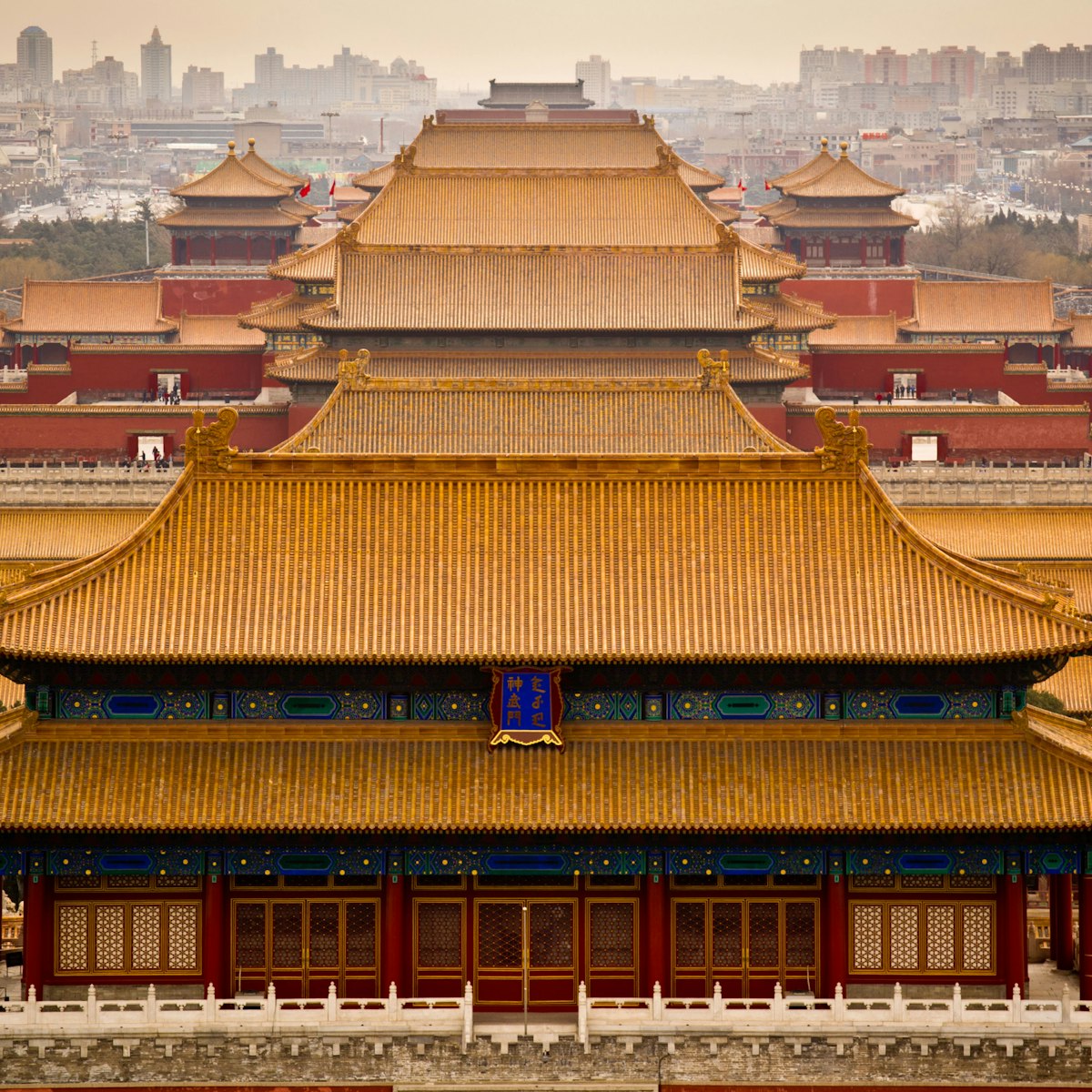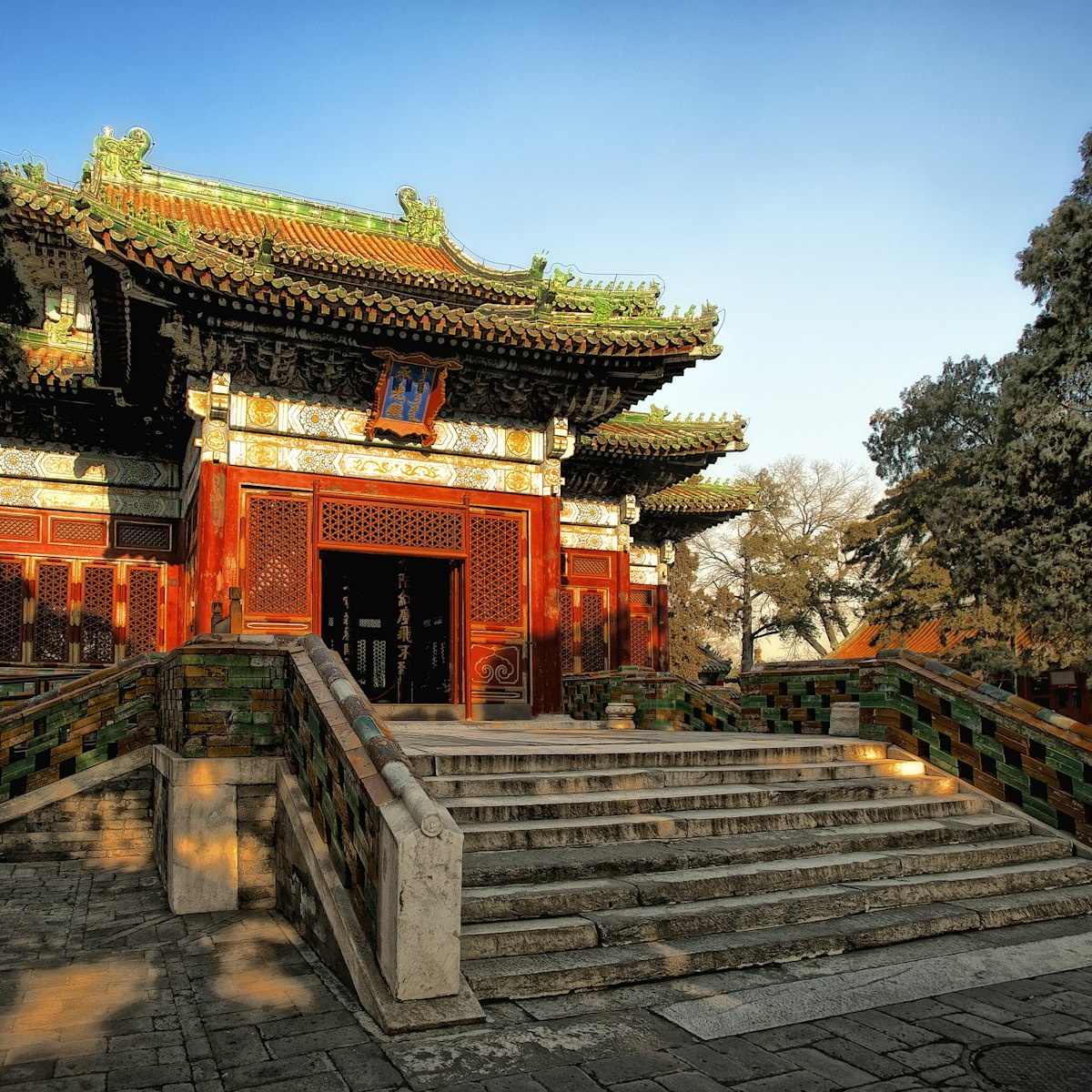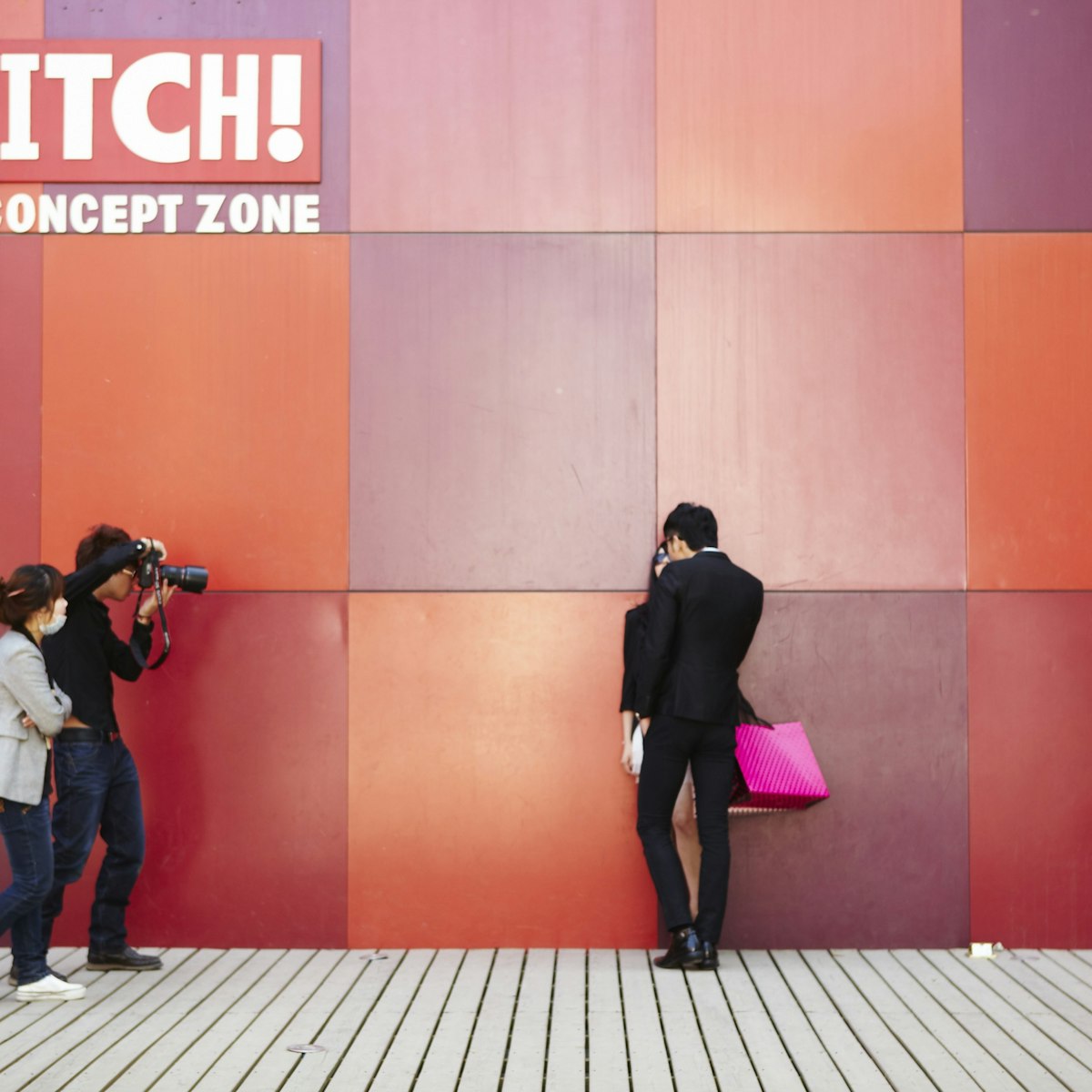Though it dates back to the Yuan dynasty, this enchanting Buddhist temple complex was enlarged to its current splendor by Emperor Qianlong in 1748, adding the all-marble Diamond Throne Pagoda at the rear, inspired by the Mahabodhi Temple in India, and the astonishing Hall of Arhats, housing a merry retinue of 500 lifelike Buddhist disciples. The hillside forest setting, on a quiet weekday, is a tranquil delight.
Crossing a Ming-era stone bridge, Azure Clouds Temple rises gracefully up the hillside towards the Mountain Gate Hall (Shanmen). It's guarded by Heng and Ha, generals of the mythical Shang dynasty charged with protecting Chinese Buddhist temples. (They met their match in Mao's Red Guards, though – these two were recarved in 1992).
The Maitreya Buddha Hall beyond the complex's Drum and Bell Towers houses a rotund bronze Maitreya, coal-black with age. Further on, a pair of octagonal stone stupas topped with royal yellow tiles enclose stelae recording the temple's restoration by Qianlong. It's thanks to his veneration of Chinese culture (technically the Qing were Manchu, not Chinese), together with no small amount of hubris, that so much coin was lavished on restoring China's imperial and religious architecture during his long reign.
Between 1925 and 1929, the innermost hall, rechristened the Sun Yatsen Memorial Hall, contained the revolutionary leader's body while his grand mausoleum in Nanjing awaited completion. The garish glass coffin on display, donated by the USSR, was never used. Mr Sun's clothes and hat were sealed up in the ornate and unusual Diamond Throne Pagoda, reached through an exquisitely carved stone páilóu (triple-arched gate). Sadly, these days you can only admire the pagoda from behind a fence. Console yourself by seeking out the Hall of Arhats to the left of the complex (when facing uphill). One of only four in China, the dim chamber contains 500 painted clay statues, almost human-sized, of Buddhist luohan (those freed from the cycle of rebirth), each sculpted with a unique personality. See if you can find the statue of one giving another a piggyback!
The entrance to the temple is inside the main north entrance of Fragrant Hills Park and requires a supplementary ticket.







